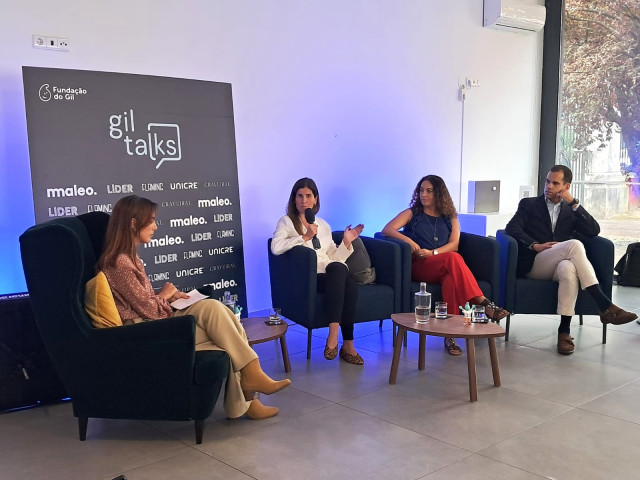Gil Talks: Positive Organizational Culture

Maleo is an official sponsor of Gil Talks, an initiative that brings together companies, social impact and conversations that have an impact.
The first session with our support kicked off with a topic that moves us: positive organizational culture.
Recorded live at the Gil Foundation's Casa do Jardim, it was moderated by the engaging Madalena Carey (Happiness Business School) and featured the authentic sharing of three inspiring leaders: Ana Soares (Airbus Portugal), João Sales (KEO Europe) and Rita Mendes Coelho (Visa).
This meeting spoke truthfully, without filters, about the backstage of culture, the importance of conscious leadership and obsolete corporate practices.
Positive culture is not written, it is lived.
It doesn't come from slogans or manuals, but from daily, consistent, human gestures. The concepts of trust, respect, transparency and empathy marked the conversation not as buzzwords, but as real and extremely necessary foundations:
• Giving teams a voice is trust in action
• Communicating clearly, even when it costs, is transparency applied
• Celebrating small victories is a form of respect and appreciation
• Creating space to make mistakes and learn is the direct result of empathy
And how can we talk about a positive culture without talking about leadership?
Although employees also have a duty and responsibility to work towards a culture of respect and empathy, leadership must recognize these values as essential in their organization. It's essential to exercise leadership that serves rather than imposes, that doesn't control and command, but facilitates and listens. One that understands that each team is unique, that presence counts more than position and that true power lies in making others grow, removing obstacles, creating security and unleashing each person's potential. It is this leadership that transforms. It makes people stay, not because they have to, but because they want to.
What no longer serves us should not be replicated.
Retaining talent at any cost is a thing of the past. Accepting the natural cycles of people in companies and keeping the doors open for those who may one day return, with new experiences and learning, is a sign of organizational maturity.
Excessive bureaucracy, heavy hierarchies and noisy communication are also obsolete practices. To grow is also to simplify, even if this is often the most difficult of tasks. The question remained in the air: “What if, instead of always adding, we started by removing what no longer serves us?”
At Maleo, we left this conversation with our heads and hearts full and yet with more questions than answers. And that's exactly what we're looking for: to continue questioning, learning and building a more conscious future, both inside and outside organizations.
Back